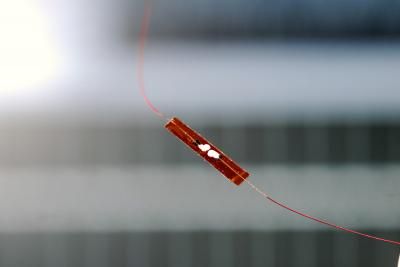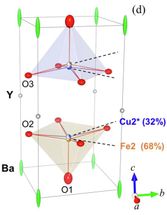A breakthrough for organic reactions in water
Green-chemistry researchers at McGill University have discovered a way to use water as a solvent in one of the reactions most widely used to synthesize chemical products and pharmaceuticals. The findings mark a potential milestone in efforts to develop organic reactions in water.
Chao-Jun Li and Feng Zhou of McGill's Department of Chemistry report that they have discovered a catalytic system which for the first time allows direct metal-mediated reactions between aryl halides and carbonyl compounds in water.
For the past two decades, researchers have been exploring ways to do away with chemists' traditional reliance on non-renewable petrochemical feedstocks and toxic solvents. One important method has involved replacing the toxic solvents used in metal-mediated reactions with water something that was previously considered impossible.
While researchers at McGill and elsewhere have succeeded in using water in metal-mediated reactions between carbonyl compounds and other halides, attempts to do so for the most challenging reaction, between aryl halides and carbonyl compounds, have never worked until now.
Prof. Li and Dr. Zhou, a postdoctoral fellow, found that rhodium - a metal primarily used in the catalytic converters of automobiles - as a catalyst together with zinc as a mediator can make the reaction possible in water. This new technique bypasses a number of challenges posed by conventional practices in carrying out this reaction, which is widely used in synthesizing fine chemicals, biologically active molecules and pharmaceuticals. Traditional methods, discovered more than a century ago, require that moisture and air be carefully excluded from the process.
The new aqueous approach promises to "streamline synthetic sequences and make them safer and more efficient," said Prof. Li, Canada Research Chair in Green Chemistry.
Original publication
Most read news
Other news from the department science

Get the analytics and lab tech industry in your inbox
By submitting this form you agree that LUMITOS AG will send you the newsletter(s) selected above by email. Your data will not be passed on to third parties. Your data will be stored and processed in accordance with our data protection regulations. LUMITOS may contact you by email for the purpose of advertising or market and opinion surveys. You can revoke your consent at any time without giving reasons to LUMITOS AG, Ernst-Augustin-Str. 2, 12489 Berlin, Germany or by e-mail at revoke@lumitos.com with effect for the future. In addition, each email contains a link to unsubscribe from the corresponding newsletter.





















































